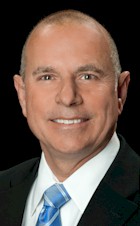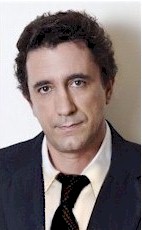.jpg?w=70)
I have been asked quite a lot lately about the subject of Health and Wellness trends within the hospitality world. With that, I thought the subjects of fitness and healthy lifestyle manifestations within the hotel industry would be an interesting conversation piece. Certainly, our Clients have this on their minds within the project mapping phases of the projects we are endeavoring. Demands of the fit-conscious traveler are driving operators to offer healthy alternatives to the traditional decadence once lavished on the business traveler and casual vacationer. READ MORE




 On any hotel design project, architects are generally serving at least three masters - the owner/developer, the hotel operator, and the general public who will utilize the hotel - and each have their own goals, objectives and demands. The owner/developer is concerned with brand standards, the target market and the hotel's locale, while the operator is concerned about achieving the highest possible revenue through efficient design. The public is demanding that architecture and design be fully integrated into the guest experience, based on prevailing tastes and preferences. The architect's role is to respond professionally and efficiently to meet the demands of all and to develop a unified solution. Though each project has its own prerequisites and obligations, there are some general design trends which seem to be prevalent across the industry. First, there is an increased emphasis on the importance of the lobby. The principle here is that first impressions matter and that a hotel has only a few minutes to convince a guest that they have made the right decision. Hotel lobbies are being completely re-imagined - from eliminating front desks altogether to turning lobbies into warm, intimate social spaces, replete with fireplaces and comfortable furniture. There is also an increasing use of ambient natural light, even in large spaces like ballrooms and meeting rooms. In addition, there is greater emphasis on incorporating the distinctive attributes of any given location into the hotel design, which guests are defining as central to their experiences. The June issue of the Hotel Business Review will report on all these exciting developments in the fields of architecture and design.
On any hotel design project, architects are generally serving at least three masters - the owner/developer, the hotel operator, and the general public who will utilize the hotel - and each have their own goals, objectives and demands. The owner/developer is concerned with brand standards, the target market and the hotel's locale, while the operator is concerned about achieving the highest possible revenue through efficient design. The public is demanding that architecture and design be fully integrated into the guest experience, based on prevailing tastes and preferences. The architect's role is to respond professionally and efficiently to meet the demands of all and to develop a unified solution. Though each project has its own prerequisites and obligations, there are some general design trends which seem to be prevalent across the industry. First, there is an increased emphasis on the importance of the lobby. The principle here is that first impressions matter and that a hotel has only a few minutes to convince a guest that they have made the right decision. Hotel lobbies are being completely re-imagined - from eliminating front desks altogether to turning lobbies into warm, intimate social spaces, replete with fireplaces and comfortable furniture. There is also an increasing use of ambient natural light, even in large spaces like ballrooms and meeting rooms. In addition, there is greater emphasis on incorporating the distinctive attributes of any given location into the hotel design, which guests are defining as central to their experiences. The June issue of the Hotel Business Review will report on all these exciting developments in the fields of architecture and design.































